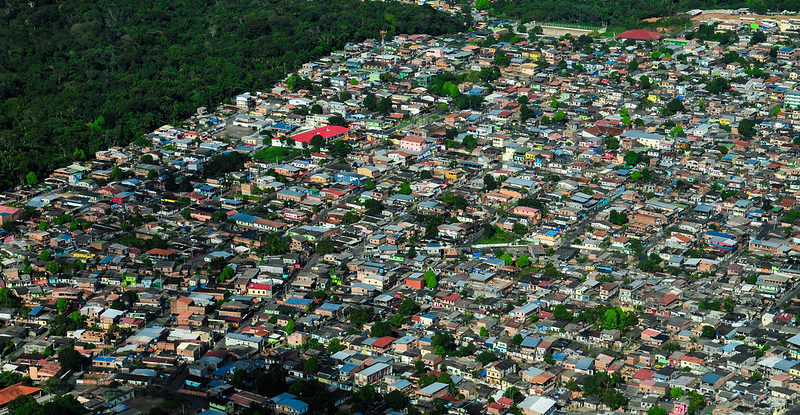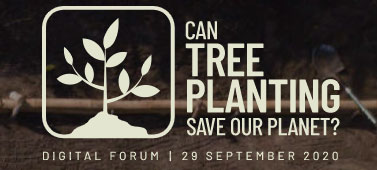
A new green cities initiative will encourage governments to kickstart large-scale transformative changes to improve food security, nutrition and the wellbeing of people in and around urban centers, said the director general of the U.N. Food and Agriculture Organization (FAO) on Friday.
The program will help transform agri-food systems, accelerating efforts to meet the U.N. Sustainable Development Goals before they expire in 2030, said Qu Dongyu, during a launch broadcast through video conferencing provider Zoom.
“The Green Cities Initiative aims to galvanize local governments, not just for sustainably produced healthy food, but also to contribute to the ecological management of water resources, sustainable land use and the expansion of green spaces – including urban forestry – in considering economic, social and ecological gains comprehensively,” Qu said.
Building on the participation of an initial 100 cities around the world, Qu said he hopes a thousand cities will join over the next 10 years. Cities can play a significant role in climate change mitigation and promoting sustainable resource management, he added.
Currently, 55 percent of the world population lives in cities, a percentage that will grow to 68 percent by 2050, with 90 percent of the increase occurring in Africa and Asia, Qu said. Already, about 70 percent of the world’s food supply is consumed by urban dwellers, cities consume almost 80 percent of the total energy produced in the world and are responsible for 70 percent of global waste and 70 percent of global energy-related greenhouse gas emissions, he said.
As cities grow, so will demand for basic goods and services, but pressures of the COVID-19 pandemic are already taking a toll on the most vulnerable urban dwellers, according to an document titled Green Cities Action Programme: Building Back Better released by FAO.
Through the new program, FAO aims to support cities in efforts to improve wellbeing by increasing the availability of and access to products and services provided by green spaces, including urban and peri-urban forestry, agriculture and sustainable food systems.
In areas surrounding cities, deforestation linked to urban sprawl leads to loss of biodiversity and to watershed degradation, with a negative effect on water quality and an increase in landslides, floods and water scarcity in the downstream areas, according to FAO.
“Actions and FAO support will focus on innovation and green technologies for food systems and green infrastructure, improved food distribution systems and food environments, improved food and water waste management and how to bring this all together through improved urban planning and rural urban linkages,” the document states.
The urban forestry component of the program will include a range of measures. It will help develop tools to establish criteria for selecting appropriate species, including fruit trees, through environmental and socioeconomic modeling — also known as “planting the right tree in the right place.”
It will also involve developing protocols for the collection and propagation of plant materials of suitable tree species, enhancing local capacity for nursery and seed management. Tools will be developed to allow species assessment and performance of urban forests, including through citizen science. Tools for planning vertical forests, pocket parks, green walls and rooftops will also be developed.
In many countries, multiple government departments have overlapping responsibilities for different components of multifunctional green infrastructure and food systems, the document states, pointing out that a holistic view is often lacking and actions are uncoordinated.
“The recent experience regarding COVID-19 is a glaring example,” the document states. “A national integrated policy, governance and planning approach, based on information and evidence, consultation and proper institutional mechanisms — including monitoring, evaluation and accountability — is needed.”
For low income people living in slums, access to green spaces is often lacking, but livelihoods can be enhanced by growing food if planners start to think differently, said Achim Steiner, administrator of the U.N. Development Programme, who spoke at the launch event.
“We live in an urban geography that is defined by extreme inequality,” Steiner said. “We’re on the verge of a new age with digital agriculture, smart cities – agri-tech and agri-food technologies sector, mobile technologies, vertical cities. The ability to grow food in an urban constrained-space environment is actually not science fiction anymore.”
Maimunah Mohd Sharif, executive director of U.N. Habitat and the former mayor of Malaysia’s Penang Island, said that as one of the 21st century’s most transformative trends, urbanization and nature-based solutions must be a focus.
“Urban and rural interactions are key for greener cities, so in this context for urbanization it becomes imperative to protect more green public space that includes ecosystem functions of peri-urban and rural areas,” she said. “We need a new way of thinking to plan and design our cities to be cleaner, greener, safer and healthier — and happier cities — through vertical and horizontal integration of space in cities and rural areas linkages.”
We want you to share Forests News content, which is licensed under Creative Commons Attribution-NonCommercial-ShareAlike 4.0 International (CC BY-NC-SA 4.0). This means you are free to redistribute our material for non-commercial purposes. All we ask is that you give Forests News appropriate credit and link to the original Forests News content, indicate if changes were made, and distribute your contributions under the same Creative Commons license. You must notify Forests News if you repost, reprint or reuse our materials by contacting forestsnews@cifor-icraf.org.
